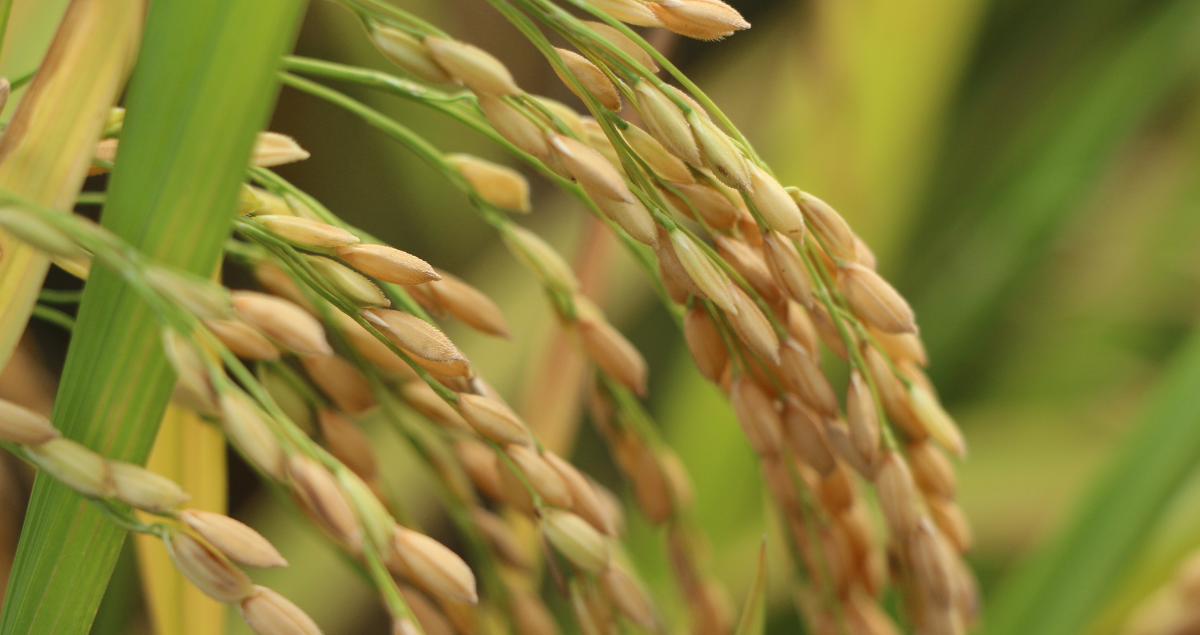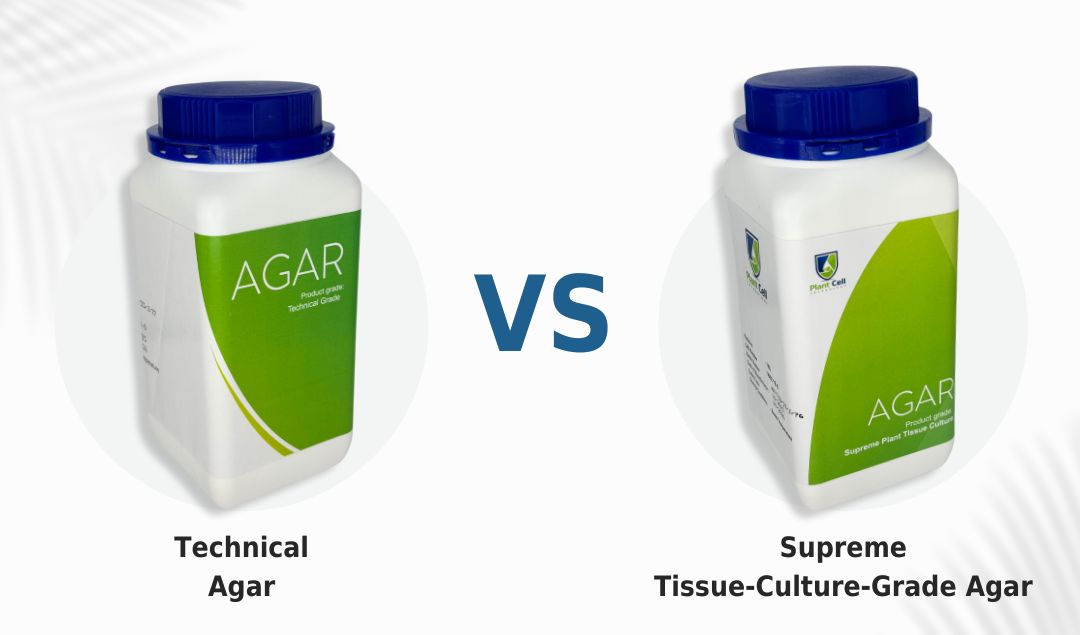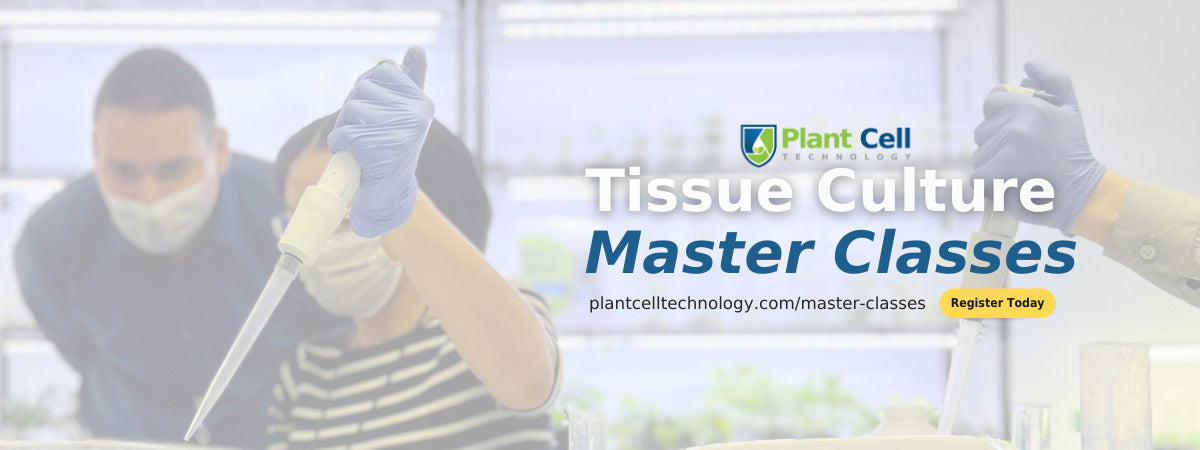
From Lab to Table: How Tissue Culture is Changing the Food and Nutrition Industry?
As a content and community manager, I leverage my expertise in plant biotechnology, passion for tissue culture, and writing skills to create compelling articles, simplifying intricate scientific concepts, and address your inquiries. As a dedicated science communicator, I strive to spark curiosity and foster a love for science in my audience.


Overview
According to the UN report, the number of global hunger has reached 828 million in 2021, which is a million more than in 2020. Since the COVID outbreak, the numbers have increased by 150 million.
This pushes the goal of eliminating hunger further away!
The main drivers for such a condition are:
- Deforestation and Changing Climate
- More food wastage and food loss
- Extreme poverty
- Agricultural diseases
- Population growth
And others!
We can tackle the challenges of climate change for efficient and sufficient food production by using advanced biotechnology approaches available today. Using gene editing technologies we can develop plants that are resistant to diseases and pests and can tolerate changing climate conditions.
Further, we can also choose plant genetics that produces a higher yield without much loss.
If you remember, the green revolution brought by Normal Borlaug has alleviated hunger in countries like India and Pakistan by creating wheat varieties that provided high yields. This was done by using cross-breeding and hybridization technologies.
Though GMOs are not getting more success and are caught up in controversies, we can still use tissue culture technology to increase production at a large scale and produce plants that are free from diseases.
Further, it doesn’t require much space like other propagation approaches.
Let’s learn more about the technique and see how it can help in food improvement, increased yield, and production of disease-free plants to help us fight hunger.

How Tissue Culture Can Help In The Plant Production To Meet Global Demand?
Tissue culture is an advanced technology of plant production. It only requires a few plant tissues to grow into a mature plant. The tissues are introduced in an artificial nutrient media and incubated in a controlled sterile environment.
The whole process has four stages:
- Culture initiation: at this stage, healthy plant tissues are collected from a healthy mother plant, surface sterilized, and introduced in a nutrient media for callus formation or organ development.
- Multiplication: Then, the tissues or explants are transferred to a multiplication media containing plant hormones for shoot development. At this stage, you can have as many as around 50 plants in one jar.
- Rooting: The regenerated plant shoots are transferred to a rooting media for root development.
- Acclimation: Before taking plants to natural conditions, they are acclimated in the controlled greenhouse environment and gradually introduced to the natural conditions. This prepares them to thrive in outside environments.

The technology offers many advantages to growers and industrialists:
- Because tissue culture is performed in a sterile lab environment, the plants are free from diseases and pests.
- Hundreds of plants can be produced in a jar, thus, it requires less space and energy inc the commercial production of plants.
- Only a few tissues of the plants are required for the regeneration of whole plants and that’s why there’s no loss of hundreds of mother plants and the technique poses a sustainable approach.
- Synthetic seed technology (a tissue culture technique) allows the preservation of genetics. Thus, protecting conserved and protect endangered or extremely endangered plant genetics.
- Tissue culture also reduces the overall time it takes for plants to mature. Additionally, the plants can be produced irrespective of their seasons.
Considering the advantages of the tissue culture technique, it’s evident that it’s an effective solution to meet the anticipated growth in food demands, which seems impossible to achieve using traditional farming methods due to climate change and increasing population.
Tissue culture not only can enhance the quality and quantity of food products, such as fruits, vegetables, and grains, but also enhance their nutritional value. This can be achieved by combining gene editing technologies with tissue culture techniques.

Applications of Tissue Culture in the Food Industry
Tissue culture offers a tangible solution for serious crop problems. The technique offers a sustainable approach to meet the food demand of the increasing human population.
Here’re some applications of tissue culture technology in the food industry:
- Bananas, which are cultivars of Musa acuminate, has long been a significant export product in tropical regions. However, limited production due to the unavailability of reliable and safe planting materials has posed a significant challenge for the banana industry.
- Tissue culture provides an efficient solution for addressing these problems by enabling the production of disease-free planting materials throughout the year. With tissue culture, banana cultivation can be significantly improved, leading to better crop yields and increased availability of this essential food crop.
- Further, the technique also offers an effective approach to producing disease-free stock material.
- Wheat, a major food crop worldwide, is essential for meeting human nutritional needs. Biotechnology and tissue culture techniques are being employed to develop new wheat varieties that can resist diseases and produce higher yields.

- Pineapple production is limited due to the lack of planting materials. Tissue culture is a useful and cost-effective method to mass-produce desirable plants, such as Smooth Cayenne, through micro-propagation. Studies by Geoge and Sherrington (1984) have shown that pineapple can be propagated in vitro at a high rate of 30 to 50 per month and that the use of cytokinins results in the induction of somaclonal variations.

- For over 7000 years, rice has been a crucial food crop with more than half the world's population depending on it. The most promising technique for improving crops is through plant tissue culture methods, which offer a range of solutions to crop-related challenges. Rice breeders use tissue culture for increased rice production and produce cultivars that are resistant to stress conditions.
- The use of anther culture has gained popularity as the primary method for producing homozygous rice cultivars worldwide.

Challenges of Tissue Culture
Tissue culture is not without limitations and to reap maximum benefits from the technique in crop improvement, we need to overcome these challenges for efficient production:
- Maintaining aseptic conditions, product removal, and continuous operation are some major limitations of tissue culture.
- Somaclonal variation, which frequently occurs in populations produced from tissue culture, has a negative effect on the application of tissue culture and has been a major concern.
- Plant tissue culture methods are both costly and time-intensive. To address these concerns, researchers have experimented with different materials like sugar, starch, and plant gums. Additionally, bioreactors and robotic propagule handling have shown promise in reducing production costs.
- The occurrence of somaclonal variations, during in vitro propagation, commercial phytochemical synthesis, or genetically modified plants, can cause significant economic consequences and hinder the practical application of plant tissue culture techniques for active metabolite production.

INTERESTED IN LEARNING TISSUE CULTURE TECHNIQUES FOR YOUR PLANT BUSINESS? WE CAN HELP!
Plant Cell Technology is a leading provider of tissue culture products and services. It offers tissue culturists like you all the products you need to perform your in vitro experiments, ranging from MS media, agar, gellan gum, and culture vessels, to hormones and our proprietary product plant preservative mixture (PPM).
Further, if you’re stuck at any stage of the tissue culture process, you can use our consultation services to have a video chat with our tissue culture expert. He will give you an instant potential solution to your problems to keep your lab experiments running!
And, if you are new to the area and interested in growing your plant business using this amazing technology or want to learn this propagation technique as a hobbyist, you can join our tissue culture master class. The classes are curated to turn you into a tissue culture pro. They are leas by tissue culture experts in the area who teach you how to efficiently use the technology for your use.
Blog Categories
View by Level
Popular Blogs

New Technical Agar Vs Supreme Agar
Introduction What’s the secret element that supports and holds plants in vitro? Not sure? It’s the solidifying agent. Solidifying agents...
Read More
Get the Protocol: How to Tissue Culture Nepenthes Using Nodes and Seeds
Introduction This plant is non-vegeterian... ...and we're not kidding! Nepenthes belongs to one of the most interesting families of carnivorous...
Read MoreSubscribe to Our Newsletter








Join the conversation
Your email address will not be published. Required fields are marked